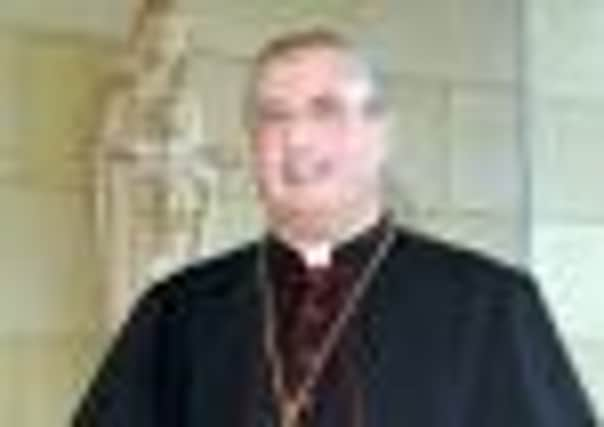Cardinal’s fall can benefit Church and state alike


You don’t say, Your Grace. For public life in Scotland, the revelations and the fall of the Cardinal fall marks a significant moment.
Puffed up by regular booming headlines, by high-profile individuals at its helm, and by the lazy, widespread assumption that “Catholics” could be grouped together as block movement to be tipped one way or another by one word from the pulpit, the Church has long been granted a major presence in the public chessboard. Politicians over the years have bought into the myth, keen to ensure close relations have been maintained, wary of causing offence.
Advertisement
Hide AdAdvertisement
Hide AdArguably, that edifice had already begun to crumble before the revelations about the cardinal emerged last week. For example, despite significant internal fears, the SNP government pushed ahead with its gay marriage legislation last year and, lo, the predicted backlash from the pews did not actually happen.
Now, following the cardinal’s case, the facade of the Church’s influence, built on old realities which are fading from view, has surely taken a terminal hit. It will be a long time before any Catholic figure can fulminate angrily about the latest assault on public morality and be taken seriously (not that they appear to want to; following the outrage that accompanied his comments about the death of the Labour MP David Cairns, Tartaglia has pulled up the media drawbridge). Meanwhile, the crisis has exposed a Church leadership that is paper thin; most of the Church’s dioceses are now bishop-less, and its remaining leaders appear tired and defensive.
If the cardinal’s story does change the Church’s role in public life, then it will all be to the good – and for the Church as well. Politicians can put behind them misguided and often patronising attempts to triangulate policies in a way that placates whatever bishop comes their way, as if the Church is a religious version of the CBI. Instead, they can focus – as they should – on the actual issues at hand.
Meanwhile, as Archbishop Tartaglia seemed to grasp in his sermon on Monday, the scandal will force the Church to adopt a humbler face; the sheer weight of evidence surrounding the cardinal means it cannot give into its worst instincts and try and sweep the mess under the carpet. This will be painful in the short term, but – freed from this instinct to hide and to keep up appearances – it isn’t too naive to assume that, in time, with a more contrite face, some of the issues it wants to focus on – from the state of family life to questions of injustice – might just get a hearing. Don’t waste a crisis, goes the saying; a new generation of Church leaders now has an opportunity to find its voice.